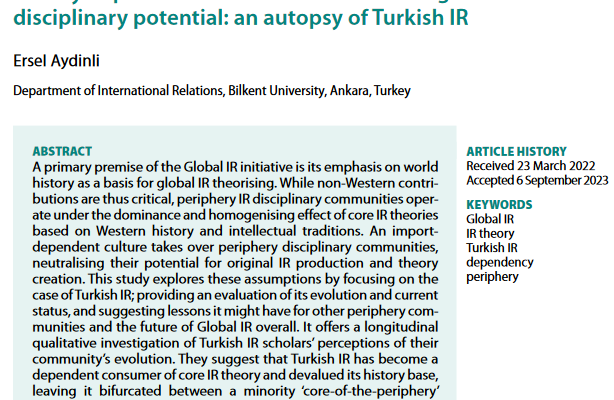Theory importation and the death of homegrown disciplinary potential: an autopsy of Turkish IR
A primary premise of the Global IR initiative is its emphasis on world history as a basis for global IR theorising. While non-Western contri-butions are thus critical, periphery IR disciplinary communities oper-ate under the dominance and homogenising effect of core IR theories based on Western history and intellectual traditions. An import-dependent culture takes over periphery disciplinary communities, neutralising their potential for original IR production and theory creation. This study explores these assumptions by focusing on the case of Turkish IR; providing an evaluation of its evolution and current status, and suggesting lessons it might have for other periphery com-munities and the future of Global IR overall. It offers a longitudinal qualitative investigation of Turkish IR scholars’ perceptions of their community’s evolution. They suggest that Turkish IR has become a dependent consumer of core IR theory and devalued its history base, leaving it bifurcated between a minority ‘core-of-the-periphery’ who operate as ‘compradors’, copying and marketing global core knowledge, and a majority ‘periphery-of-the-periphery’, who remain voiceless, disconnected and resentful. Ultimately, the local commu-nity is unable to offer original contributions to the globalisation of IR, and the global IR movement is structurally diminished through the exclusion of large portions of the scholarly community.
To continue reading: Third World Quarterly


